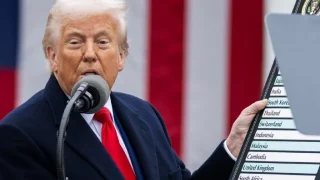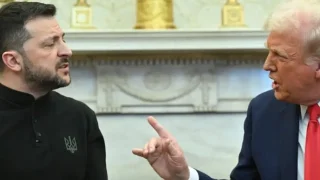
This paper outlines and endorses a new initiative for a Global Free Trade Alliance that would promote free exchanges between nations on a voluntary basis and could become a ‘World Trade Organisation Plus’ among relatively free economies:
- The Heritage Foundation, an influential free market think tank in Washington D.C., has published a proposal inviting the US Congress to grant free access to traders and investors from fairly free economies. The proposal is based on voluntary cooperation, reciprocity and the understanding that jurisdictions can at any time again leave the proposed Global Free Trade Alliance (GFTA). Members of the Alliance would treat each other’s citizens as if they were residents for purposes of trade and investment.
- The Alliance is intended to supplement multilateral, regional and bilateral negotiations to free up trade and investment flows. It is meant to invite parliaments to remove residual barriers to trade and investment, end economic discrimination against foreigners, secure private property rights, and implement efficient, transparent regulations.
- An advantage of this proposal is that membership is not based on the mistaken assumption that free trade and investment are at the expense of the nation. Discrimination against producers or investors, who live beyond the national borders, diminishes the opportunities of national citizens to attain prosperity and freedom. Another advantage is that Congress would give the US administration an open-ended authority, thereby avoiding divisive country-specific ratification. Implementation does not depend on lengthy international haggling. The pace of liberalisation is dictated by the willing.
- A major advantage would be that Alliance membership raises the price for political meddling in the economy, as this could mean expulsion from the Alliance.
- The Alliance would not require a bureaucracy of its own. Occasionally, a network of trade ministers will have to define minimum standards, discuss possible violations and enforce adherence to economic freedom by Alliance governments.
- According to the Heritage scholars, a dozen countries – including Australia and the United States – already meet the preconditions for membership. Many more do not miss the mark by much. The opportunities of huge markets will create pro-Alliance lobbies that will act as a counterweight to protectionist interests.
The GFTA proposal will of course not remedy all ills of political interventionism but, like all measures to open national economies, it would raise the cost of interventionism. It has the potential of becoming a beacon for a more prosperous and freer global community.
Although Australia will soon have fairly free access to US markets, becoming a foundation member of the proposed Alliance would conform to our professed mission as a protagonist of progress, peace and free cooperation in the world. In the long run, our prosperity, influence in the world and security would benefit.
Wolfgang Kasper is a Senior Fellow at The Centre for Independent Studies and Emeritus Professor of Economics with the University of New South Wales. He is the author of Capital Xenophobia (CIS Policy Monograph No. 6) and has written extensively about international markets and globalisation.









